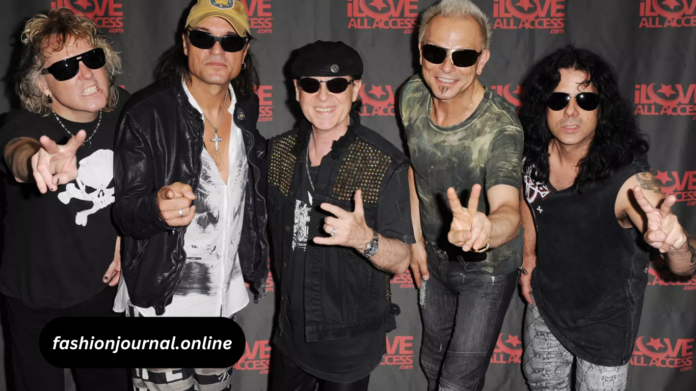When you hear the name Deep Purple, what comes to mind? For most, it’s their unforgettable riffs, electrifying stage presence, and a legacy that has shaped the very foundation of rock music. Known as pioneers of hard rock and heavy metal, this legendary band has been a household name since the late 1960s. However, their “Fake Farewell Tour” has sparked an intense conversation among fans and critics alike. Are they truly saying goodbye, or is this just another rock ‘n’ roll publicity stunt?
Farewell Tours in Rock Music History
The Concept of Farewell Tours
Farewell tours have always been a bittersweet note in the symphony of rock. Bands use them to bid adieu to their fans while soaking up one last round of applause. But are they really goodbye? Historically, the term “farewell tour” often comes with a wink and a nod—an open secret in the music industry.
Famous Bands and Their Farewell Strategies
From KISS to The Eagles, many iconic bands have embraced the farewell tour format, only to return a few years later. For these legends, saying farewell can feel more like “see you later.” So, how does Deep Purple’s latest announcement fit into this narrative? Let’s dive in.
The Fake Farewell Tour Phenomenon
What Is a Fake Farewell Tour?
A “fake farewell tour” isn’t as deceptive as it sounds. It’s often a way to rejuvenate a band’s brand, hype up ticket sales, and create a sense of urgency among fans. Essentially, it’s the band’s version of “last chance to see us!”
Deep Purple’s Announcement: Real or Hype?
When Deep Purple announced their farewell tour, fans were skeptical. With decades of groundbreaking performances under their belt, many wondered if this was truly the end. Their history of surprising twists and returns suggests that this might be more showbiz than sincerity.
Marketing Strategies Behind Farewell Tours
The phrase “farewell tour” is a goldmine for marketing. It plays on fans’ emotions, encouraging them to buy tickets and merchandise. It’s no wonder some bands stretch the “farewell” concept over several years—and Deep Purple might just be following suit.
Deep Purple’s History of Tours
Memorable Tours Over the Decades
From the ‘70s with Machine Head to their more recent albums, Deep Purple’s tours have always been a masterclass in showmanship. Who can forget the roaring success of the Made in Japan tour or their explosive reunion gigs in the ‘80s?
Their Influence on Modern Bands
Ask any modern rock or metal band, and chances are they’ll cite Deep Purple as an influence. Their touring style, blending technical mastery with raw energy, has become a template for generations of musicians.
Controversies Surrounding the Farewell Tour
Fan Reactions: Love or Betrayal?
Fans are divided. Some feel this “farewell” is a heartfelt goodbye to a beloved band, while others see it as a calculated move. Social media is ablaze with debates, with some calling it a “money grab” and others defending the band’s right to bow out on their terms.
Critics’ Opinions on the “Farewell” Strategy
Music critics have weighed in, with many questioning the ethics of farewell tours that don’t truly signify the end. Is it fair to fans, or is it just part of the rock ‘n’ roll spectacle?
Deep Purple’s Legacy: Beyond the Tour
Contributions to Rock Music
Deep Purple isn’t just a band—they’re an institution. From their innovations in studio recording to their iconic tracks like Smoke on the Water, their contributions to music are immeasurable.
Future Prospects for the Band
Even if this is a “farewell,” Deep Purple’s influence isn’t going anywhere. Whether through their music, documentaries, or tribute bands, their legacy will continue to inspire.
Conclusion
Deep Purple’s “Fake Farewell Tour” is more than just a series of concerts—it’s a cultural moment. It highlights the complicated relationship between artists and their audiences, blending nostalgia with the business of music. While the verdict on their farewell remains uncertain, one thing is clear: Deep Purple will forever remain in the spotlight.
FAQs
What is a fake farewell tour?
A marketing strategy where bands announce a farewell tour, often to boost ticket sales, but don’t fully commit to retiring.
Is Deep Purple really retiring?
The band hasn’t confirmed retirement. Their “farewell tour” might be more symbolic than definitive.
What are Deep Purple’s most famous songs?
Tracks like Smoke on the Water, Highway Star, and Child in Time have defined their career.
How have fans reacted to the farewell tour?
Reactions are mixed, with some excited to see the band one last time and others skeptical of the “farewell” claim.
Why do bands announce farewell tours?
It’s a mix of genuine emotion, fan engagement, and savvy marketing to reignite interest and sell tickets.

